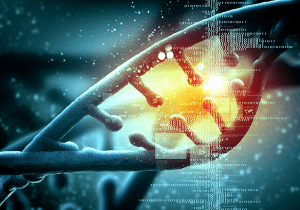Blog
Rights to Your Genomic Information
 What rights do you have to your genomic information? In a recent panel discussion of this topic, and perhaps not surprisingly, the answer of the lawyers was, "It depends."
What rights do you have to your genomic information? In a recent panel discussion of this topic, and perhaps not surprisingly, the answer of the lawyers was, "It depends."
It is now clear that isolated DNA having a naturally occurring sequence, such as might occur in your body, is not patentable. The U.S. Supreme Court decided as much over a year ago in the case of Association for Molecular Pathology v. Myriad Genetics, 133 S.Ct. 2107 (June 13, 2013). The decision sent shock waves through the industry and was widely acclaimed as a victory for patients—who celebrated the idea that their genetic information was not "owned" by the testing companies.
Many testing companies continue, however, to maintain databases that include the genomic information of persons who are tested. Typically, the genomic information is extracted from samples taken with the permission of those persons, and should be used only according to the terms of their agreement. Where the samples are for healthcare and kept in health records, the use of the genomic information is generally protected by applicable privacy laws including HIPAA. Indeed, the information in such genomic databases often is valuable, at least in part, because it is kept secret and proprietary.
But protections on the disclosure of your genomic information are not fail-safe. Breaches may occur, information may be shared or exchanged among companies, and HIPAA protections may not apply if the genomic information was not acquired for healthcare purposes or by entities subject to HIPAA. And, unlike a credit card number, you can't get a new genomic sequence.
In addition, these protections do not exist if a third party obtains your genomic information without your permission. As my co-panelist Adam Sand, Associate General Counsel for Ancestry.com, pointed out, many things we discard can be tested for DNA—including chewing gum, cigarette butts, used Kleenex, and hair, among other things. And there are only a few states with laws that say the results of testing of a DNA analysis are "the unique" or "exclusive" property of the person sampled or analyzed, and thereby prevent the taking of a sample for DNA analysis. In most states, a person's genomic information may be extracted from the samples they leave behind and used freely.
All of which may be fine Many people have made their genomic information openly available, and most people are sharing personal information widely with their use of digital apps. However, the interpretation of genomic information is likely to become more sophisticated in the future, and such information may be used to identify individuals and discover things about them. Whether such uses will constitute an invasion of privacy remains to be seen.
In the meantime, individuals and companies that manage their genomic information should proceed with caution, and should consider carefully the contractual terms and privacy laws that may—or may not—apply.
Feel free to contact us to learn more about privacy law as it relates to health care and digital health matters. We would be happy to discuss these topics with you.
The opinions expressed are those of the authors on the date noted above and do not necessarily reflect the views of Fish & Richardson P.C., any other of its lawyers, its clients, or any of its or their respective affiliates. This post is for general information purposes only and is not intended to be and should not be taken as legal advice. No attorney-client relationship is formed.